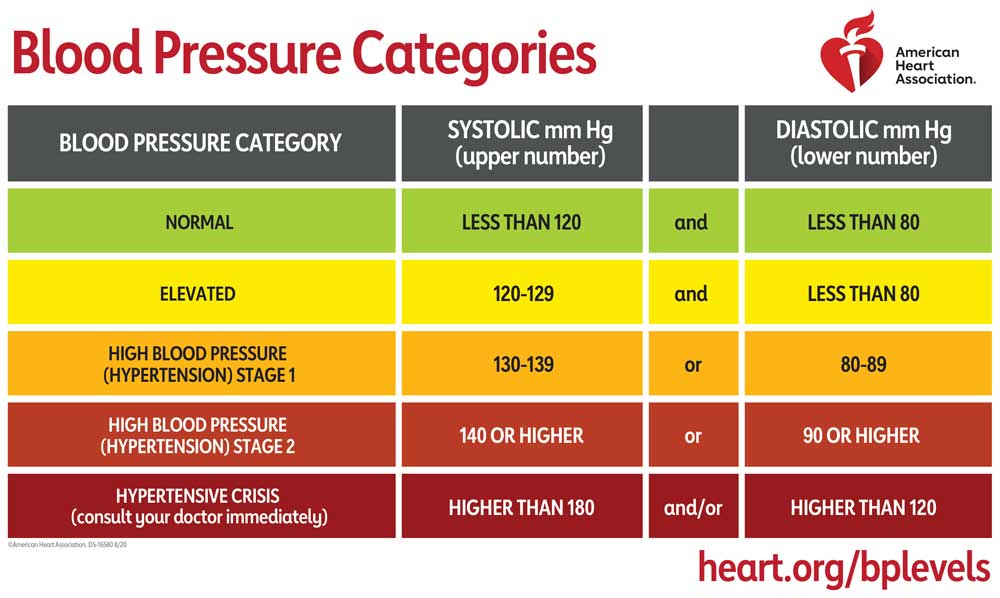Hypertension, also called high blood pressure, affects tens of millions of adults in the U.S. High blood pressure increases the risk for heart disease, heart attack, and stroke.
Blood pressure is the pressure of your blood pushing against the walls of your arteries. Arteries are blood vessels that carry blood from your heart to other parts of your body. If your blood pressure stays high for a long period of time, it can damage your heart and cause other health problems.
Blood pressure is measured using two numbers – the first number, systolic blood pressure, measures the pressure in your arteries when your heart beats. The second number, diastolic blood pressure, measures the pressure in your arteries when your heart is resting between beats. A normal blood pressure level is less than 120/80 mmHg. If your pressure is higher, there are many steps you can take to lower it.
